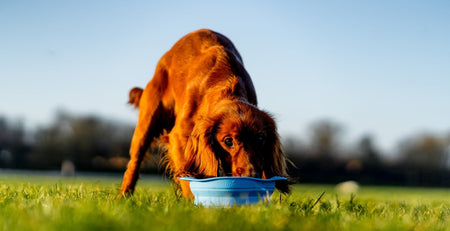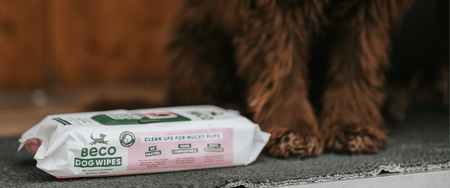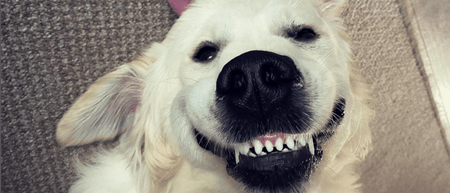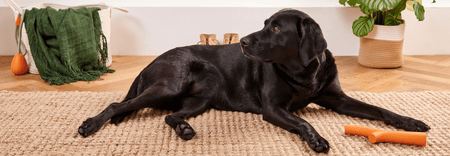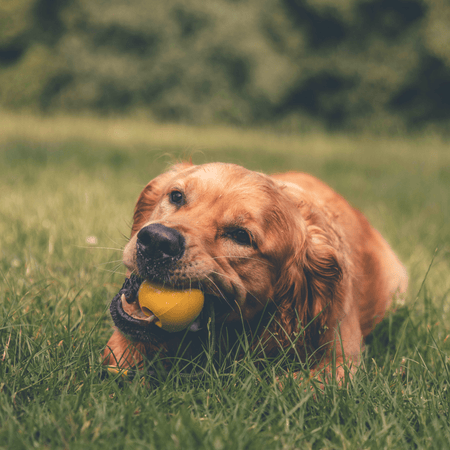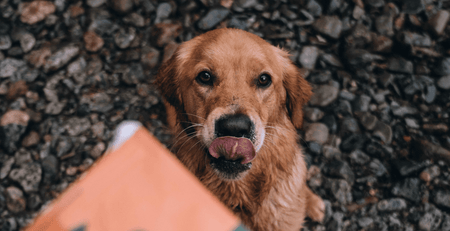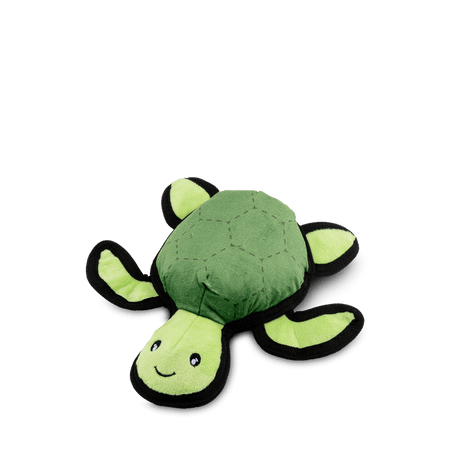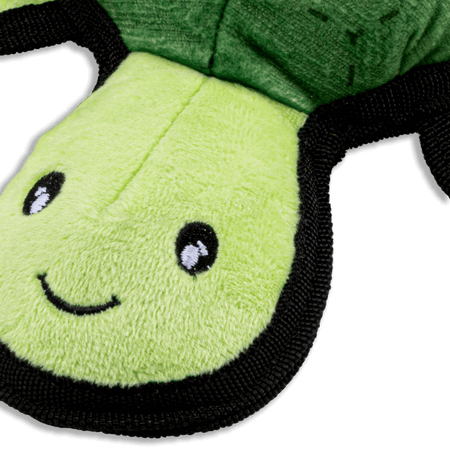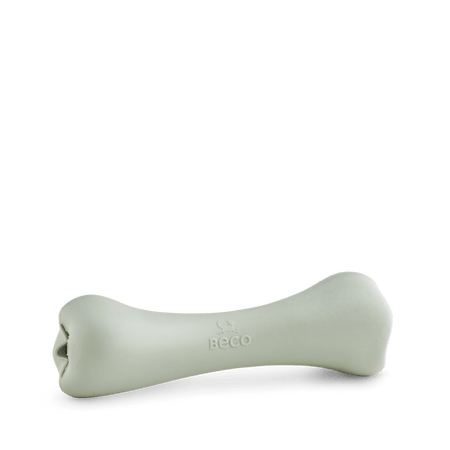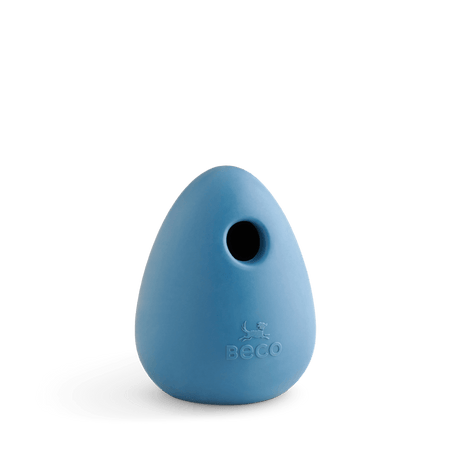Puppy teeth are tiny but razor-sharp—and if you've got a nippy little one, your hands, ankles, and furniture probably know it all too well.
Biting is natural for puppies, but that doesn’t mean you have to live with it. With the right training, those sharp little chompers will turn into gentle play.
Here’s how to curb biting fast—without the stress (or shredded shoelaces).
- Puppies bite to explore, play, and relieve teething pain—not to annoy you.
- Stop play immediately when bitten to teach boundaries puppies understand.
- Most puppies naturally outgrow biting by six months with proper guidance.
Why Do Puppies Bite?
Puppies are adorable, but those tiny, needle-sharp teeth can make life a little less cuddly. Whether your puppy is nibbling during playtime or chomping down on everything in sight, it’s important to address biting behaviour early.
Puppies bite for a few reasons, and understanding why is the first step in teaching them to stop.
Teething Troubles
Like babies, puppies experience discomfort when their teeth are coming in. Biting helps relieve that pain.
Providing safe chew toys during this phase can make a big difference.
Exploration
Puppies use their mouths to explore the world. It’s natural, but they need guidance on what’s okay to chew. Training your puppy early helps prevent destructive chewing habits later.
Play and Communication
When puppies play with their littermates, they bite. It’s how they interact, but they need to learn that biting humans isn't the same.
Teaching bite inhibition now can prevent painful bites as your puppy grows.

Teaching Bite Inhibition
Teaching bite inhibition means showing your puppy how to control the force of its bite. This is key to preventing accidental injuries.
React Appropriately
When your puppy bites too hard, let out a sharp "Ouch!" and stop playing. This mimics the reaction of a hurt littermate and teaches boundaries.
Repeating this consistently helps your puppy understand which bites are too hard.
Stop Playtime
If biting continues, end the fun. When your puppy realises biting stops playtime, they’ll start to connect the dots. Over time, they’ll learn gentle play keeps the fun going.
Redirecting Biting Behavior
Redirection is all about giving your puppy a better choice. If they’re biting your hand, offer a chew toy instead.
Offer Chew Toys
Make sure your puppy has a variety of chew toys to satisfy their teething needs. This also helps to stop them from targeting your hands or furniture.
Rotate toys regularly to keep things interesting.
Engage in Non-Contact Play
Games like fetch or tug-of-war channel energy without encouraging biting. Keep your hands out of play to avoid confusion. This also helps teach your puppy to focus on toys, not your skin.
How to Choose the Right Chew Toys for Your Puppy
Choosing the right chew toy is more important than you might think. Here’s what you should think about:
-
Safety First: Look for toys that are durable and non-toxic. Avoid anything that can be swallowed or easily torn apart. Unsafe toys can lead to choking or digestive issues.
-
Pick the Right Size: Toys should be large enough to prevent choking but not too big for your puppy to handle comfortably. The right size helps your puppy engage with the toy safely.
-
Mix Up Textures: Puppies love variety. Soft, rubbery, and hard toys can keep them interested and engaged. Different textures also provide varied sensory experiences that can reduce boredom.
-
Avoid Dangerous Materials: Stay away from toys with small parts that could break off. Rawhide can be risky too, as it may cause digestive issues. Instead, choose safer alternatives like rubber or nylon.
Consistency and Patience in Training
Consistency is everything when training your puppy. If one person in the household allows biting while another discourages it, your puppy will get mixed signals.
-
Set Boundaries
Make sure everyone in your home follows the same rules. This will help your puppy understand what's expected. Consistent boundaries reduce confusion and speed up learning.
-
Reward Good Behaviour
When your puppy plays nicely without biting, give them a treat and lots of praise. Positive reinforcement is powerful. It helps your puppy associate good behaviour with positive outcomes.
Avoiding Unintentional Encouragement
You might be encouraging biting without even realizing it. Certain actions can send the wrong message.
Avoid Rough Play
Wrestling with your puppy or letting them gnaw on your hands might seem fun, but it teaches them that biting is part of the game. Instead, focus on structured play with toys.
Stay Calm
Shouting or physically punishing your puppy can increase anxiety and lead to more biting.
Instead, use a firm but calm voice. Calmness shows your puppy how to respond to stressful situations.
When to Seek Professional Help
Sometimes, biting isn’t just about teething or play. If your puppy is showing signs of aggression or if training doesn’t work, reach out to a veterinarian or a professional dog trainer.
Early intervention can prevent behavioural issues down the road.
Frequently Asked Questions
How to stop my puppy from biting fast?
The quickest way to stop puppy biting is through consistent redirection. When your puppy bites, offer a chew toy immediately and praise them when they use it.
When do puppies stop biting?
Most puppies naturally grow out of biting by around six months old, especially with consistent training and teething relief.
How to stop a puppy from biting you?
If your puppy bites you, stay calm. Pull your hand away slowly and give them a toy to bite instead. Avoid sudden movements, which can trigger more biting.
Conclusion
Puppy biting is a phase, but it’s not one you have to endure forever. With consistent training, the right chew toys, and a bit of patience, those sharp little teeth will find better targets than your hands and furniture.
Teaching bite inhibition, setting clear boundaries, and redirecting energy towards safe play all go a long way in raising a well-mannered pup.
Need some tough, safe toys to keep those puppy teeth busy? We've got soft plush toys for gentle play and durable rubber toys for enthusiastic chewers. Take a look at our collection and find the perfect fit for your pup!


